Yummy and Safe Coconut Milk
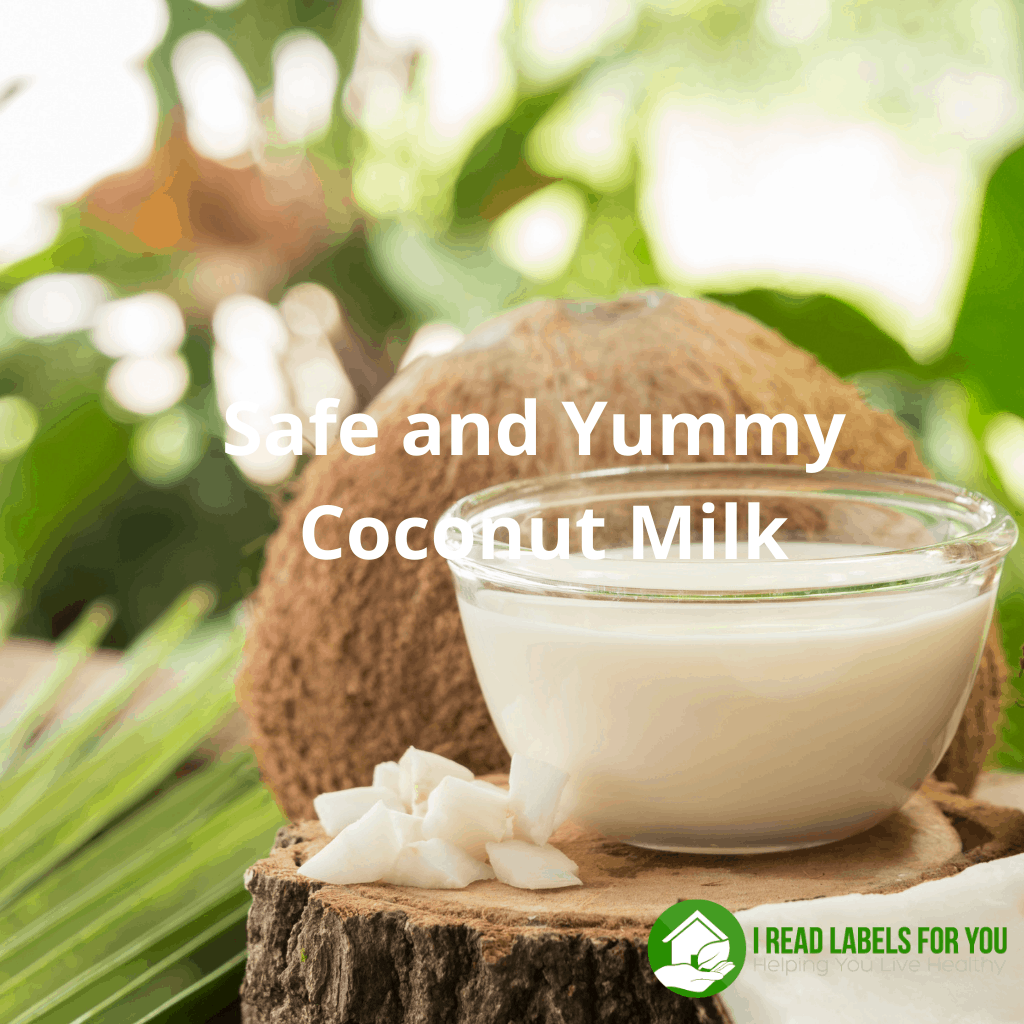
Do you use coconut milk in cooking? I use it to make curry – a dish where taste, nutrition, and ease of preparation meet. However, buying the right kind is not easy because even organic coconut cream may come in a chemical-leaching container. You may have noticed “BPA-free” claims on many food containers. What I learned about the BPA-free claims is disappointing, but I am happy to offer you a solution. Read on to learn about a safe coconut drink alternative to those that come in metal cans and tetra paks. Also, stay with me to discover what company offers healthy food choices tested for glyphosate, a carcinogenic herbicide.
They use BPA to make epoxy-resin linings of metal cans for coconut milk.
According to the Buyer Beware: Toxic BPA and Regrettable Substitutes report, BPA-based epoxy lining is one of the five major can lining types.
Allegedly, bisphenol A (BPA) may mimic estrogen in people and animals, which may cause obesity, infertility, heart disease, and cancer (source).
In cans, including organic coconut cream cans, BPA epoxy-resin lining forms a barrier between the metal and the food. That is to say, it helps create a seal to keep the contents of the can safe from bacterial contamination. The bad news is that BPA leaches from the can lining into the food exposing consumers to its toxic effects. Besides, BPA is not the only “bad guy.”
As an example, to make BPA-based epoxy anhydride, they use 13 different chemicals:
- Cyclohexanone
- 2-butoxyethyl acetate
- 2-n-butoxyethyl acetate
- Naphtha-light aromatic
- Titanium dioxide pigment
- Epichlorohydrin-based polymer
- A flow additive (no specifics given)
- Carboxylic acid anhydride-based polymer
- Ethylene glycol monomethyl ether acetate
- Propylene glycol monomethyl ether acetate
- A dispersing agent (no specifics given, but amines are common)
- One of four possible cross-linkers (three of which contain melamine)
Would you like any of these in your coconut milk? This shows why it is important to know what is in can linings.
As a result of BPA’s notoriety, many canned food manufacturers claim they stopped using cans with BPA epoxy lining. But what do they use instead? Unfortunately, few companies are willing to reveal their materials, as many consider it “proprietary information.”
The substitutes to BPA in organic coconut cream and milk metal can lining can be harmful, too.
In addition to BPA-based epoxy, manufacturers use acrylic resins, oleoresin, polyester resins, and polyvinyl chloride (PVC) copolymers in can linings. However, the Buyer Beware report states that little is known about both the additives used in these linings and the amounts of chemicals that may leach into food. Sadly, US government regulations are not strong enough to motivate manufacturers to find safe alternatives. Indeed, manufacturers must only label food ingredients, and are not required to list all the substances with which the food comes into contact.
In search of non-toxic coconut drink, I contacted the manufacturers of Native Forest and Natural Value canned organic coconut milk. As a result, both companies assured me that they did not use cans with BPA-based epoxy lining anymore.
Alternatively, Native Forest uses titanium dioxide-based white lacquer lining, and Natural Value uses aluminized polyester and organosol.
Titanium Dioxide
Before buying organic coconut cream or milk in a titanium-based lining can, let us see what we know about this substance.
Many kinds of processed food have it: candy, chewing gum, white powdered doughnuts, and products with white icing. Importantly, emerging research suggests that it is not as good for human bodies as previously assumed.
For example, this study indicates that titanium dioxide may cause inflammation in the small intestine. And this research shows that it can accumulate in organs and cause physiological changes.
Aluminized Polyester
Further, the Buyer Beware report suggests that polyester is a toxic substitute to BPA in cans, e.g., coconut milk cans. Thus, the 2016 report states that “[a] large number of monomers can be used to form polyester resins. Melamine-formaldehyde resins or polyisocyanates, both of which have health concerns, are sometimes used as cross-linkers.” According to the International Agency for Research on Cancer, melamine can cause cancer in animals, and formaldehyde is another carcinogen.
As for aluminum, it has some health concerns, too, as it may leach aluminum salts. There is a hypothesis that aluminum contributes to Alzheimer’s disease and to the body’s depletion of phosphorus, calcium, magnesium, and iron. Besides, aluminum is bioaccumulative, meaning that it accumulates in the body over time. Therefore, I would not purchase organic coconut cream or milk in a can with aluminized polyester lining. Neither do I consider aluminum a non-toxic material for healthy cookware (check out my Safe Cookware Guide).
Organosol
Finally, organosols are “industrial coatings where resins such as polyvinyl chloride (PVC) are suspended or dispersed in an organic fluid.” I urge you to stay away from PVC as it is created from repeated monomers of vinyl chloride. To clarify, vinyl chloride is considered a human carcinogen and may be inhaled or absorbed through the skin (source and source). In addition, there may be traces of vinyl chloride in PVC products (source). My post PVC Yoga Mats will give you details about both vinyl chloride and PVC and their toxicity to health.
In sum, I feel a little better about Native Forest’s can lining than about Natural Value’s lining. However, what I learned about lining substitutes convinced me to avoid canned coconut products altogether.
I avoid coconut milk stored in plastic containers.
My search for organic coconut cream or milk brought me to other containers than metal cans – Tetra Paks and plastic.
To begin with, plastic is a common term for a broad range of synthetic and semi-synthetic solids. The most common raw materials for plastic are crude oil and natural gas. First, manufacturers extract compounds from these materials and link them into polymers. Then, they modify plastics with chemical additives to create specific textures, colors, clarity, heat, durability, light resistance, and flexibility.
However, these additives are not always permanently bonded to the plastic and are free to leach out under certain conditions. Namely, these conditions include heat, dishwashing, microwaving, and contact with fatty or acidic foods. This is a big problem because many of these additives are highly toxic.
Seemingly, the scariest additive is bisphenol A (BPA) which mimics estrogen and can act in the body as such. Therefore, seeing a “BPA-free” label, consumers may think that the product is safe. But it is not necessarily so. Remember that when one ingredient is gone, another one takes its place. For example, common BPA substitutes Bisphenol S (BPS) and Bisphenol F (BPF) are just as harmful (source).
Are plastics that are free of BPA, BPS, and BPF better?
In 2011, George Bittner, a neurobiology professor at the University of Texas-Austin, the founder of CertiChem lab, tested all types of plastics. He concluded that almost all commercially available plastics that he tested leached synthetic estrogen (source).
Tetra Pak organic coconut cream and milk containers consist of paperboard and plastic.
In the mode of experimentation, I bought USDA-certified organic So Delicious Unsweetened Coconut Milk.
It comes in Tetra Pak cartons which are made of paperboard sandwiched between polyethylene plastic. On the one hand, this plastic is a safer kind of plastic and definitely better than can linings. But on the other hand, it is still plastic with undisclosed ingredients that touch your food. So much for paperboard.
Besides, the problem with carton packaging is that not many communities compost or recycle it. This means that we are adding to the ever-growing landfill.
Then, there is Let’s Do Organic Creamed Coconut that comes as a brick of USDA organic coconut cream. You need to dilute it with hot water and in a few strokes with a fork, you have creamy milk. We loved the taste of this milk!
Nevertheless, there is some exposure to plastic as the brick comes in a plastic wrap. Although it is a safer kind with a low risk of breaking down and leaching, it is still plastic. Therefore, I was glad to find the ultimate solution, and I am excited to share it with you.
Glass jars are the safest choice for storing coconut milk.
For starters, with a few exceptions, clear non-crystal glass is the safest material for food containers, cookware, and tableware. Indeed, glass normally does not leach lead, cadmium, and other heavy metals (unlike ceramics or clay). Neither does it leach hormone-disrupting chemicals (unlike plastic). To make the best decision for your kitchen and health, read my post about Lead Free Glass Brands.
So, of course, I was happy to come across coconut cream concentrate in a glass jar!
Healthy Traditions offers pure coconut cream concentrate with no additives.
When I first saw Healthy Traditions Coconut Cream Concentrate, I was skeptical. Unlike my previous finds of USDA-certified organic coconut cream and milk, this one was not certified organic. But after I contacted Healthy Traditions, I became convinced to buy this product.
First, they source their coconut cream concentrate directly from small farmers in the Philippines who implement organic farming practices but are not certified by the USDA.
Second, it is often referred to as “coconut butter” because it is nothing but coconut with no water or additives. Therefore, it contains ALL the fiber of the coconut. They make it by drying coconut meat and then grinding it very finely. Its high fat content gives the product a creamy consistency like that of other nut butters. Hence, the concentrate may solidify. To get it out of the jar, place the jar in a saucepan with hot water for several minutes.
Third, it will save you money because you need just 1 or 2 teaspoons. Mix the concentrate with water to make creamy coconut milk. As an option, you can put it in your coffee as a non-dairy creamer or blend it with smoothies. Also, you can make it into ice cream or spread it on bread and crackers. Although it has no USDA certification as organic coconut cream, it is healthy, safe, and delicious.
That said, I want to emphasize that Healthy Traditions carries many other kinds of healthy food. Namely, they carry pasture-raised chicken and pork, and grass-fed and grass-finished beef.
Healthy Traditions tests for glyphosate and offers a big variety of healthy food.
As an online store, Healthy Traditions carries healthy food and consumer products labeled with their house brand. They do not allow any products with GMO ingredients.
Moreover, they have an in-house program to test for glyphosate, a carcinogenic herbicide. It is impressive that Healthy Traditions has zero tolerance for glyphosate, unlike the United Stated Department of Agriculture (USDA). In fact, the latter allows manufacturers to use the USDA Organic label if the product has up to 5% of the “Environmental Protection Agency’s tolerance for the specific residue detected or unavoidable residual environmental contamination” (§205.671 Exclusion from the organic sale). It means that even USDA Organic produce can contain traces of glyphosate.
I highly recommend checking which products Healthy Traditions found glyphosate-free, especially if you eat wheat products.
Why we buy Healthy Traditions meat
In addition to the coconut cream concentrate that we buy to make coconut milk, we buy Healthy Traditions meat. Just as they do not carry organic coconut cream or milk, they do not carry certified organic meat.
In an ideal world, of course we want to eat certified organic, pasture-raised, and glyphosate-tested meat. However, it is a tall order and for many of us the task is unattainable. If the choice is between organic meat where animals were not raised in pastures, on the one hand, or pastured meat, on the other, I would choose pastured meat. Besides, I really like the fact that cows are 100% grass-fed, and pigs and chicken had only non-GMO feed. Thus, we bought pasture-raised chicken and pork from them, and they are delicious.
As for packaging, the frozen foods, such as meat, arrive in boxes with a biodegradable foam type insulation and a plastic bag for the dry ice. You can put the plastic into a plastic recycle bin, and the “foam” – in the trash or compost. Supposedly, it is safe for the earth and melts away in moisture.
Summary about coconut milk
After trying several brands, including organic coconut cream brands, I definitely have a favorite – coconut cream concentrate by Healthy Traditions. It has so many benefits as a healthy, economical, and delicious product. Additionally, it gives me peace of mind because it comes in a glass jar, not a metal can or plastic container.
Along with coconut products, Healthy Traditions offers many other foods. Their meat is pasture-raised, grass-fed, and non-GMO. On top of that, they test their products for glyphosate, a carcinogenic herbicide. After contacting them and learning more about them, I can say that they seem to be trustworthy.
Nevertheless, I do not recommend their skincare products because of the use of controversial grapefruit seed extract. You can read more about it in my post WaterWipes Baby Wipes. And if you need a truly hydrating cream and safe makeup products, read my Crunchi Non-Toxic Makeup post.
Be sure to check out my shop for clean skincare and home goods for all budgets. Also, book a consultation with me to get clarification on non-toxic living. And consider joining the Savvy Consumer Circle of like-minded people for fun healthy living.
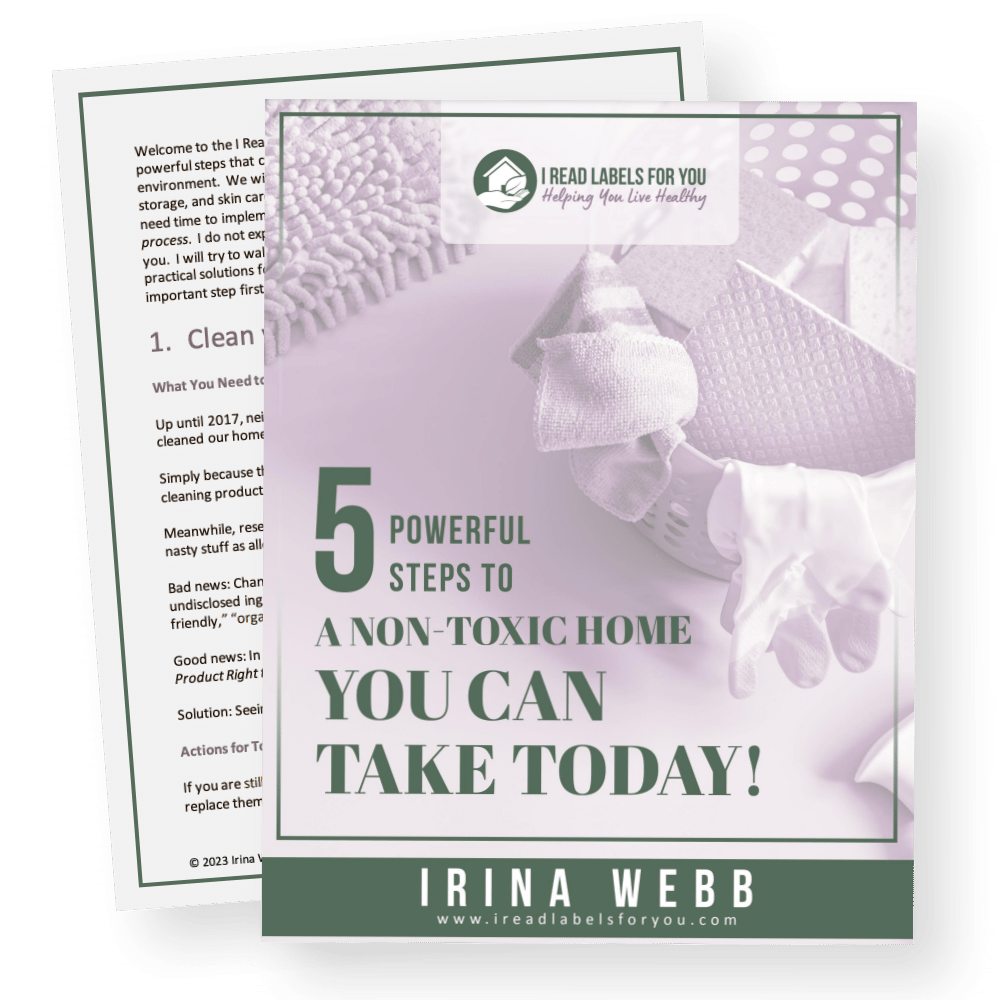
Download The Free Guide!
5 Powerful Steps To A Non-Toxic Home
Join our informed consumer community and get our free guide the “5 Powerful Steps To A Non-Toxic Home”.

 Written by
Written by 
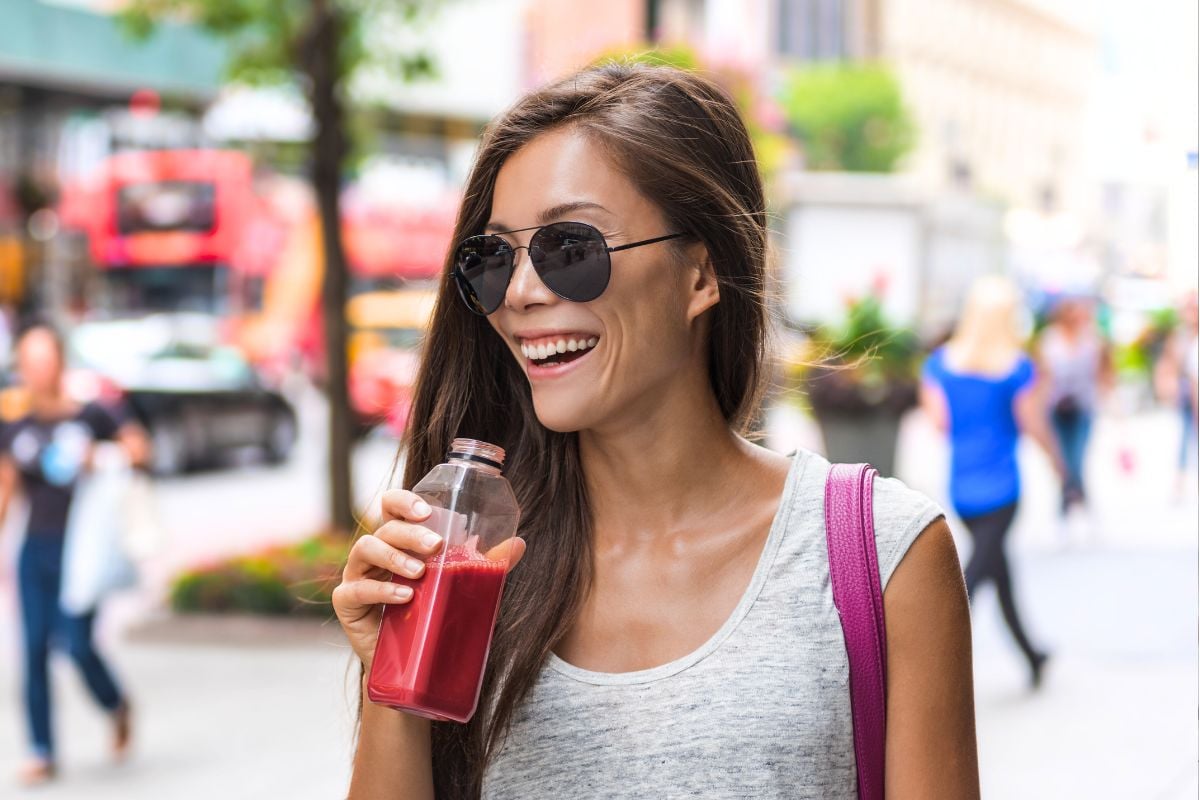
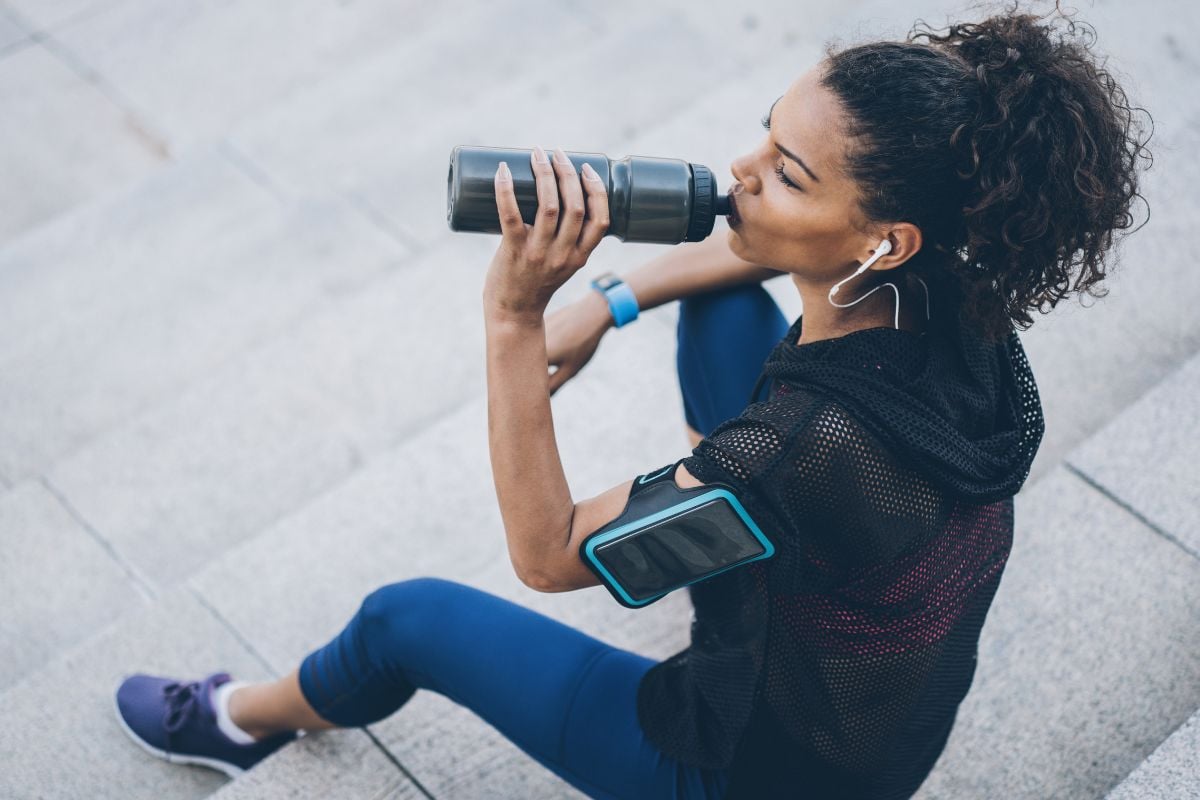

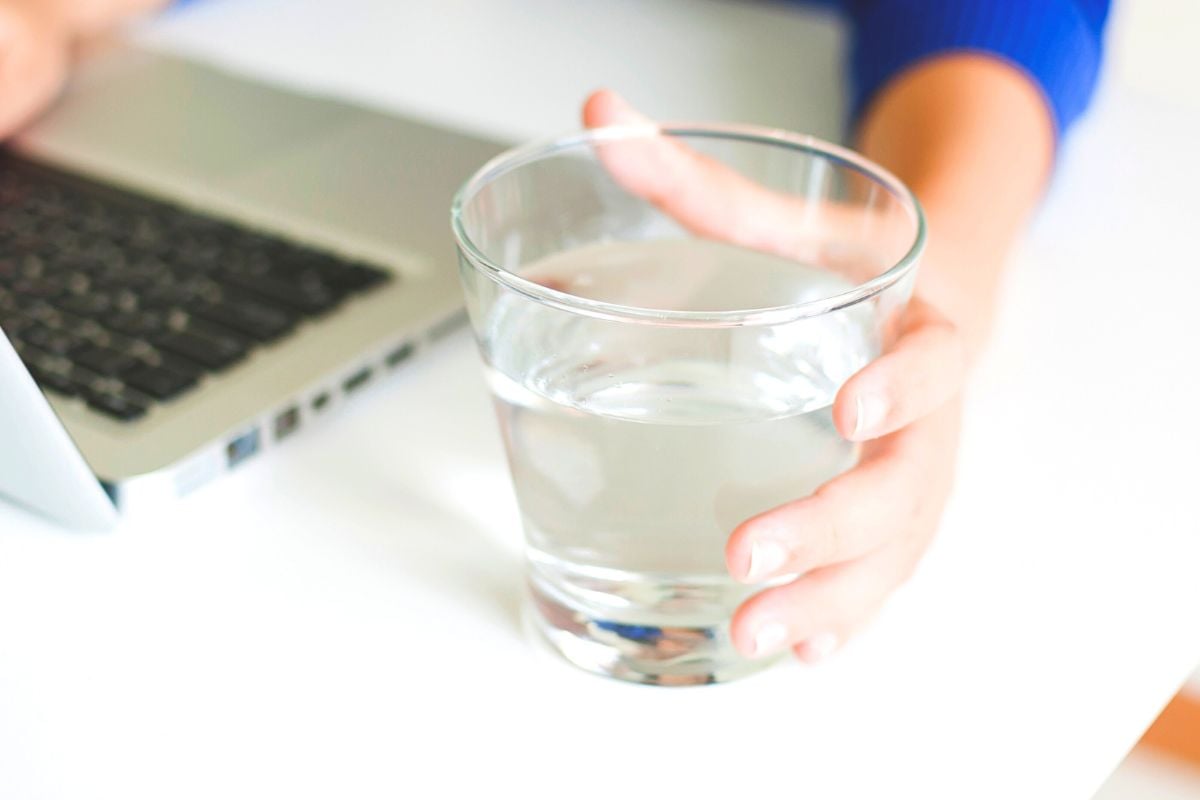
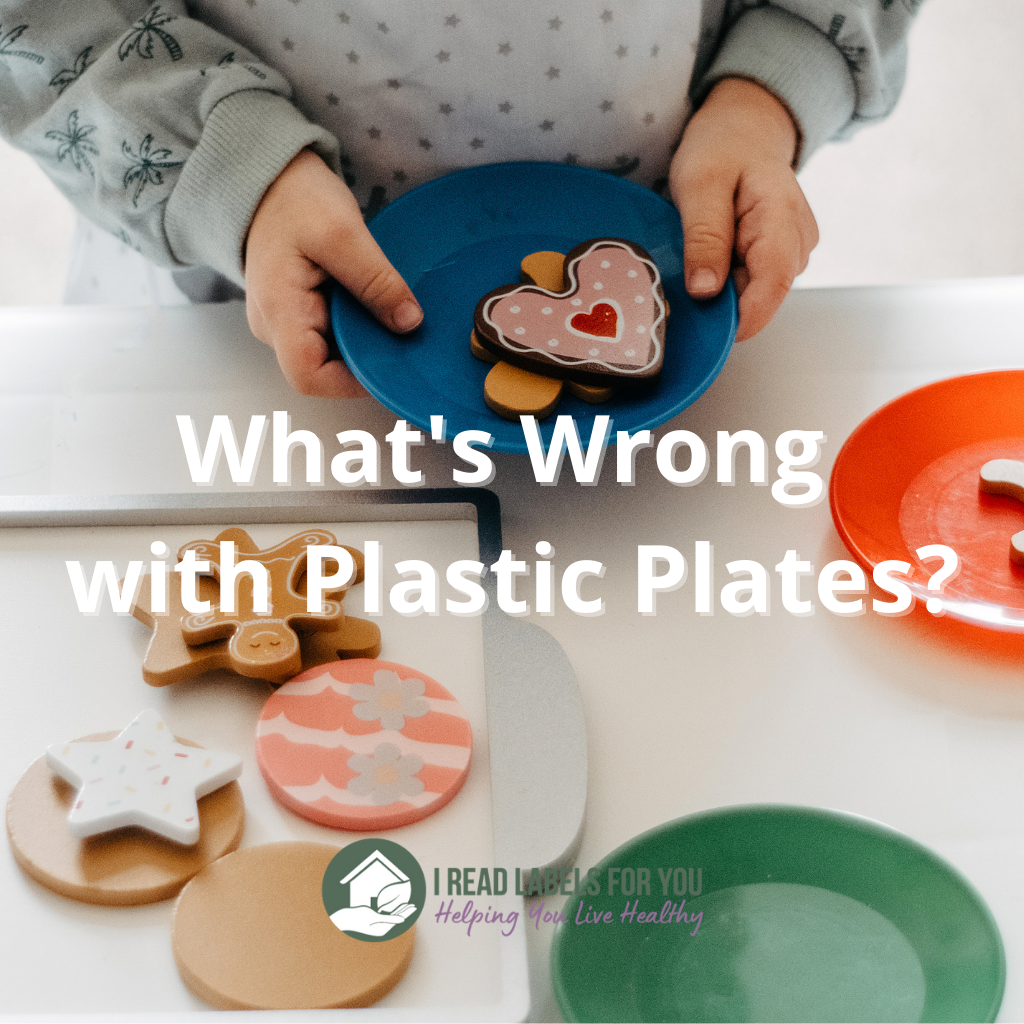
I’ve used Healthy Tradition’s coconut cream concentrate for a while and love it. I add a spoonful to my coffee and tea, and I add it into smoothies. I don’t go through the hassle of heating the jar, I just stick a fork or sharp knife (depending on the season) into the cream, scoop some out, and add it directly to my food.
Thanks for always recommending high quality products!
Thank you for your kind feedback, Lindsey! We are glad you like it!
MANY thanks for your research! Encouraging other folks to look deeper and take full responsibility is a HUGE blessing for this world! I quit using cans over a year ago but had some coconut milk still in the back of my cupboard, and just used a can a couple days ago on a whim to make curry but had an inflammatory response in my colon or some near section of lower GI before I even ate a bite, but I really want to have the heartiness of those sauces as clean as possible and I came across this site! Avoiding tetrapak and can linings in favor of glass is a chore but I think it’s so necessary after sensitizing my body through abstinence, there’s just no going back especially after recovering from immune dysregulation!
Hi, Phil! Your comment is so precious to us! Thank you so much for being a feedback-giving reader and a mindful consumer!
Great article. Just wanted to note the SO Delicious option you mention does not just have coconut and guar gum. It also has a slew of synthetic vitamins (with their own concerns!). . Thanks!
Cartons (TetraPaks) leach more estrogenics than plastics. May be heating.
https://link.springer.com/article/10.1007/s11356-009-0107-7#Fig3
^ Doubles the rate of egg laying as a terrarium.
Science experiments for kids in schools.
Hi Irina,
I really appreciate your site and the hard work you put into reasearching products for all of us.
Have you any opinion on Arroy-D coconut milk?
Thanks!
Amber
Irina and others,
Thank you for the research time and sharing of information on the brands and types of coconut milk, cream, and butter, as well as the types of containers and sources of linings.
Dawn M.
Hi! Do you happen to know how much coconut butter/manna from a glass jar (ex: Nutiva, Artisana or Tropical Traditions) & how much water is needed to make the equivalent of one can of coconut milk? Thanks so much for your research! Really appreciate having you as a trusted resource! 🙂
An easier way with no spill is to use a power drill with atleast a 3/8″ bit to make a hole. Just clean off the area after you are halfway through to avoid getting outer bark shards inside you coconut water.
Okay, I’ll try and switch to the glass jar kind, if not I’ll just buy a fresh coconut. It can’t be that hard to break it open with a hammer. Mines pretty heavy so it should crack it quick; I have cheesecloth and a magic bullet blender so making milk should be simple. 😀 I’m in love with coconut milk as my coffee creamer <# oh, yum! and so healthy. ^o^
Hi Irina (and fellow posters),
Just wanted to share a reply to a recent inquiry I made to Edward & Sons regarding the lining used in their Native Forest coconut milk cans:
“Our Organic Coconut Milk cans are lined with a polyester-based resin that tests negative for BPA at 0.2 pars per million.”
It’s a little evasive because my question was, “What are your cans lined with instead of BPA?” I think the rep was trying to highlight the diminished quantity of BPA in order to distract from the vagueness of said polyester-based resin.
Hope this helps in some small way.
Thank you so much for sharing this. It is frustrating but the more questions we ask, the sooner we affect change. ~Irina
Thanks Irina. In my opinion the worst consumer misuse is polystyrene #6.
• drinking liquids out of the foam cups, especially hot liquids
• microwaving food in the foam trays (e.g.: Chinese, Mexican) until especially the oils burns a hole in the tray and adheres to the food.
The FDA decides what is GRAS Generally Recognized as Safe for consumers. They should be decide which containers are food safe and specifically take Polystyrene & Bisephanol off the list.
Thank you Irina for your wonderful articles on BPA and a favorite of mine coconut milk. Was curious on your thoughts about
• If I had to choose one, which plastic is the most food safe. PETE, LDPE, HDPE, PP, PS
• In coconut products do the benefits of good HDL cholesterol outweigh the bad LDL consumed and hopefully converted
Hi, Mike:
I will have to refer your question about cholesterols to nutritionists. I personally think that coconut oil is one of the safest ones but everything should be eaten in moderation, even a good stuff. As for plastics, PP is definitely the safest and more durable, less likely to break down and leach potentially harmful chemicals into food. I am not a fan of any plastic but if you have to use it, I would follow these guidelines.
PP, recycle code 5: considered heat-resistant, reusable, and considered the safest.
PETE, recycle code 1: considered safe under normal conditions but will degrade over time.
HDPE, recycle code 2: considered safe under normal conditioners but will degrade over time.
LDPE, recycle code 4: generally considered safe
PVC, recycle code 3: a known human carcinogen and may leach phthalates, endocrine disruptors, and lead.
PS, recycle code 6: a human carcinogen.
~Irina
Often the metal lids to glass jars are lined with BPA. I noticed that you didn’t mention whether that was an issue with the two in glass jars that you are recommending. Were you able to ascertain whether they contained bpa or other harmful chemicals?
I know! Lids are another concern. This is a whole new project/campaign to embark on as there is virtually no information. I am hoping that in the near future, I will accumulate enough followers so I can put a significant pressure on the companies to be more transparent. With coconut butter though, it is not a huge deal because coconut butter is not liquid so the contact with the lid is very minimum. ~Irina
Thanks for such in-depth research, as always! I don’t use coconut milk often, but now I’m craving some curry;))
In terms of ordering food online – check out vitacost, they are my go-to website with good choice, very reasonable prices (much better than thrive market or Amazon) and fast shipping.
iHerb looks to be similar, I’m excited to check it out!
HI Irina,
This is not coconut milk related but I wonder what your thoughts are about Eden organic canned beans that explicitly claim to be BPA free? I’m less concerned about beans than other acidic foods that are more apt to leach but generally feed good about the Eden brand and want to trust that their canned goods are safe. Any thoughts?
Hi, Sharon: I like Eden Organic. Their bean cans have been independently tested for BPA and they are truly BPA-free. However, Eden Organic high acidic products such as tomatoes still have to contain a bit of BPA. I just looked at the website, and it looks like they are packaging their tomatoes in glass jars now. ~Irina
Thanks Irina! That was my understanding.
I like Eden too and wished they did coconut milk. Yes always buy winter tomatoes etc in jars. Eden bought an old canning place from the 60s and went BACK to lining cans with vegetables oil! It’s time every canning company went back to this.
Hi Irina,
I recently purchased Native Forest Coconut Milk Powder that comes in a pouch. It’s a shiny, aluminum looking pouch–is it mylar? I think a lot of dehydrated food packages for hikers and preppers are contained in mylar. Do you have any information on how safe this type of product is? I have not yet tried the product, so I can’t tell you how yummy or not it is, but it is “Instant!” “Just Add Water.”
Your post reminded me of when I was a little girl, and my dad, who worked in the milk bottling industry, told me that because a little girl carrying a glass bottle of milk tripped and cut her jugular vein with the broken glass, milk bottles would be changed to plastic. I don’t know if the switch was just an industry best practice change or if it was mandated by the USDA or some agency/court. So it seems that one public safety issue (switching from glass to plastic) has created others. BTW, I have never tried to verify the story he told me at the time, but I would not be surprised to find out that the plastic industry might have lobbied for the switch as well….
It is a funny story but I do not think it is true. 🙂 As for the pouches, could you name a specific product? Generally, if the content is dry, leaching should be minimum. ~Irina
Irina,
How would you recommend I prepare the “Let’s Do Organic” Coconut Cream if I were looking to freeze it to make ice cream?
Thanks for all that you do!
Gershon
Hi, Gershon, I was wondering that myself because I would like to make coconut ice-cream, too. Maybe the company would now or people who developed the recipe you are planning making. Let me know if you find out. ~Irina
I browsed through the Amazon Q&A’s and reviews for the product using the keyword “ice cream” and read a review recommending adding 16 fl oz of water for each individual package of cream in a vitamix and then straining out the pieces. Previously I used one can of Native Forest with some honey and pure vanilla extract to make ice cream, which was yummy. However, because of the current bare bones diet regimen that I am following (85% raw, wholly vegan), I followed the above review without adding anything and put it into the freezer. I will let you know how it comes out.
Thank you, Gershon. I look forward to it! ~Irina
Hello, I was referred over to you through Dr. Kelly Brogans website and came across this post about coconut milk. I am wondering if you can comment on Aroy-D coconut milk in a carton? It is distributed by Thai agri foods. It is not organic but it is really good with no other ingredients. I am happy to contact the company myself if you haven’t already but it would be great to know what you ask to determine safety?
Thank you so much for all the information you pass along!
Annie
Hi, Annie: because it is milk versus cream, there might some water involved in the processing. It would be good to know if the water is filtered. I like Let’s Do…Organic Creamed Coconut where fresh organic coconuts are simply grinded to make the Creamed Coconut. Or Tropical Traditions is also a cream. What do you think? ~Irina
There have been problems with coconut from Sri Lanka. I believe for now, coconuts from Thailand is safest.
Thanks for all the awesome info! Re: The Vitamix – I am obsessed with my new purchase! It’s plastic but claims to be safe and BPA free. Do you know if it’s fully good and lacking harmful BPAs etc? Thanks!
Hi, Cat: if it is a polycarbonate plastic, most likely it will have bisphenol chemicals such as BPS, BPF, etc. Could you check what type of plastic it is? Thanks! ~Irina
Just get an older vitamix with a stainless steel canister and avoid the plastic. ALL plastics leach chemicals into the food, so it’s super easy to avoid blenders with plastic. And if you are going to use them for hot soups/bulletproof coffee’s, etc, a non-plastic blender is a must as the plastic leaches at higher rates into hot foods. These vita-mixes with stainless steel canisters can be purchased on ebay all of the time.
Hi Irina, your picture of the curry sauce over rice looks delish!!!! Will you share your recipe please! 🙂
Hi Brenda: Sorry to disappoint you but I am so bad with recipes. I just cook and do not even use any measuring cups/spoons. So I am afraid to give you wrong proportions… ~Irina
I made coconut milk for the first time today in my vitamix. So excited to see this a few hours later!! I used organic unsweetened coconut and water. Would this the same type of coconut milk that you can cook with or buy in a store? And does it matter what kind of container I store it in? Thanks!
Hi Heidi: congratulations on avoiding a can! Because you added water, make sure you refrigerate it and use it up within the same time you use other non-animal food you refrigerate. I highly recommend storing it in a glass jar. I use these ball mason jars. And make sure you leave space between lid and coconut milk. And not to take it away from your success, does your Vitamix blender have glass or plastic container? Thank you for sharing, Irina
I’m thrilled that there is a glass coconut milk option. Do you know if the glass coconut company sources their coconuts from a fair trade company? After the recent videos released about the monkey torture and enslavement on most coconut farms in Thailand, I can only in good conscious support a company that does not kill and torture animals for a cheaper product. From my research, only fair trade properties use human labor. If you don’t know, could you give me the information to call them and ask. Thanks for all the great info Irina.
Hi Mandy: it is so great to hear from you! I hope you are doing great! Thank you for bringing up this important question. I contacted Traditional Tropical and spoke with them on the phone and by email.
Here is their answer: “Thank you for contacting Tropical Traditions about the working conditions of the coconut farmers. We would like to reassure you that Tropical Traditions is just as concerned as you are about fair trade and appropriate payment to the farmers who produce the coconut oil we sell. In fact, because of our extremely selective procedure for selecting the coconuts, we pay a higher price to the farmer.
The founders of Tropical Traditions previously lived in the Philippines and understand the economic situation of farm life in these rural settings. We place a high value on ethical integrity. We do not belong to a fair trade organization but we practice fair trade policies and pay higher than usual prices to our farmers. We understand how crucial these hard working people are to our business and we pay close attention to their working conditions and compensation. Without them, we could not offer the high quality coconut oil that customers expect from Tropical Traditions.
Tropical Traditions uses the old-fashioned method for extracting oil from coconuts. Our Gold Label Virgin Coconut Oil is made by grating the fresh coconut, extracting the coconut milk, and then letting the coconut milk stand in a covered container for about 24 hours. After 24-36 hours, the oil naturally separates from the water producing crystal clear oil that retains the full scent and taste of coconuts. This is a labor-intensive method of making coconut oil that is done in small local farm settings. We have intentionally maintained small-scale production by encouraging the reproduction of independent and locally managed production sites in many different locations.
The farmers who produce our Virgin Coconut Oil are small independent family businesses located in remote areas away from the pollution of the cities, such as on Mt. Banahaw. Many of these coconut oil producers are in areas so remote, that if they did not use their coconuts to produce Virgin Coconut oil for us, no one would buy their coconuts because it would cost too much to transport them to manufacturing plants in the cities. We provide a source of income for many who have very limited opportunity to sell their products anywhere else.
The farmers receive training to produce coconut oil according to our specifications. The training for someone to become a supplier can be more than 6 months long – even up to one year, because of our strict standards. The families who produce the oil are also trained according to GMP (Good Manufacturing Practice) standards and re-certified each year. The coconut farmers organize themselves into working groups, but retain their independent status.
You will be happy to know that when you purchase Tropical Traditions coconut oil you are supporting local farmers and their families.”
You can also contact them at 1-866-311-2626. Thanks, again!
Hi Irina,
Firstly, thank you for your helpful article. I’m going to try what you suggested and use coconut butter the next time I prepare a dish that requires coconut milk.
Do you happen to know what the covered container is made of? I saw footage of one company that provided coconut products and unfortunately the oil & other parts were kept in large plastic containers.
I guess there is a limit to what we can control and minimizing the time the product stays in plastic (e.g. ideally it’s put in the glass jars soon after collection) and not using plastic in our own homes is helpful.
Thank you!
This post made me wonder about the long winded version of this problem, that is how hard is it to make coconut cream from coconuts? What I found out is that “coconut butter” is supposed to be the same thing as “coconut cream”, and that making it involves simply a Vitamix, some shredded or flaked coconut and some coconut oil. It turns out I have been using coconut butter (organic, glass jar, Nutiva or Artisana brand) all along as a smoothie additive. I do not know if it makes a good curry. I tried to mix it with water and I’m not sure if it is the same consistency as coconut cream.
Hi Irina,
Did you check out these options – in glass jars:
Aunt Patty’s Creamed Coconut, Organic
Artisana Coconut Butter, Raw, Organic
Alina
Great research about what’s in the packaging.
After I researched the same subject, I came to the conclusion I needed to make my own coconut milk. It only takes a few minutes and tastes amazing. You can make it with organic dried coconut and your own filtered water.
Debra – how is purchasing coconut in plastic and filtering your water through plastic and then blending it in plastic a step up?
(Step in any time IW)
Hi, Joy! Please see the response to your comment from Debra:
“Well, the first way it’s different is if you make coconut milk yourself you KNOW what you are doing and what the exposures are. When you buy a product, for the most part you don’t, if at all.
And there are different types of plastic.
Yes a buy coconut in a plastic bag, but how is the coconut stored before it’s manufactured into milk?
Yes my water filter uses plastic, but I know the type of plastic and I know it is not harmful and I know what is being used to filter the water. And I can tell you my water is purer than any water being use to make a commercial coconut milk. For sure.
Yes, my blender has a plastic container, but what is the container being used to make the coconut milk commercially, and how industrial is the process. Or worse yet, how nonindustrial is the process. What kind of contaienrs are being used by people in Third World countries who may not have money for proper facilities and may not have food halndling regulations?
I’m not saying all processing is bad, but I do know that industrial processing can add toxic contaminants. That is known.
It’s ALWAYS better to make it yourself because there is much less possibility of contamination from processing and packaging, and you can control the process.
And you can buy fresh coconuts and make coconut milk. You don’t have to buy coconut in plastic.”
I don’t know to which plastic Debra refers – not one of the plastic packages of coconut I find works for me on two levels: Taste and Health.
Your concept of “making it yourself” with processed food reminds me of the woman who used to (perhaps still does – I don’t watch TV anymore/I cut the cord and purchase streaming) have a “cooking” show where she “cooked” with bottled dressings and tins of food stuffs and most of the recipes involved opening a can, arranging the store bought creams or breadstuffs – the way I imagine my grandparents aspiring to during the war – or the way I imagine people who live in “food deserts” make do.
Dried, I have tried let’s do organic coconut and TJ coconut amongst others, and dried coconut does NOT make palatable coconut milk. So even if the plastic weren’t an issue, the taste alone should be a deterrent unless you find yourself trapped on an ill fated expedition to the wilds of say, Nebraska.
And then I would still recommend bringing along coconut cream, manna or creamed coconut.
But the plastic is an issue.
Perhaps the issue is more pressing for me in particular. As I write this I cannot help seeing my lab results on the table. Which is WHY IRENA’s blog post is SO IMPORTANT: It helps explain why I am reacting to my “safe foods” sold in BPA free containers.
Debra, buying fresh coconut for me (I would assume most of us reading this live in non coconut growing places) – in NYC – means purchasing coconut swimming in fungicides and pesticides – USDA organic allows for these sprays (I know, it sucks for me, but it is true). Perhaps in your magic world where both taste and mold hold no sway over exotic-to-my-locale-food, I can hoof it through Central Park and purchase chemical free, fresh coconut for all of us.
As a self styled and anointed “advocate”, Debra, I would think it might have behooved you to at the least “peak into this” this topic before you suggested consumers purchase fresh coconut. I believe the lovely sonar operator in Herzog’s Incident at Lock Ness researched her role more carefully than you did your post.
The last time I purchased fresh coconut, I spent days in misery and pain – and I didn’t even eat it – I just picked it out and brought it home hoping my husband would enjoy using the cleaver.
Most people won’t notice these chemical biocides – but that doesn’t mean these biocides aren’t harmful to everyone. After all, we didn’t rid ourselves of BPA for the taste. For the taste, we rid ourselves of plastic entirely and use glass.
Thank you, Irena, for this blog post about BPA – I usually include more traditional sources in my research (NIH, FDA, USDA, FTC, etc). This one is a deserved exception.
Irina, thanks again for all your excellent work! I’m very surprised NY your comment regarding trader Joe’s. I’ve been told NY them that all tgeiur canned products are boa free!!!!! Not true, huh?
Hi Becki, Trader Joe’s does not disclose what type of can lining they use instead of BPA lining. The alternatives to BPA can be as bad or even worse. We just do not know. Thanks. ~Irina
Thank you, Irina. This article is very helpful!
I would love to cook with more coconut milk, but don’t because of the packaging. I wonder why companies don’t offer this product in glass? I think the Healthy Home Economist suggested a coconut cream/oil/milk (not sure which one) in a glass container once, but I can’t remember the company. It had to be ordered online as I recall. I generally use diary cream instead of coconut milk in our curries and soups. Until I find one that is offered in a glass container, that is what I will do. Thank you, Irina. Love your blog!!
I have used it in cooking and am happy with it. I no longer buy cans of coconut milk and use this instead (with added water)
This is from their web site: “Coconut Cream Concentrate, however, contains NO additives and NO preservatives at all: it is 100% natural coconut made from Philippine coconuts grown without pesticides or fertilizers.” I have always taken that to mean that this is essentially organic, but not certified. Is there something you are concerned with other than pesticides and fertilizers that would make you prefer organic certification for this?
Also, another option I recently heard about, but have not tried, is Nutiva’s Coconut Manna, which is certified organic.
That sounds good. That pretty much covers it with the exception of prior use of land. I think farmers have to use soil organically for 3 years before they are eligible for organic certification. Without organic certification, you have to take their word for it though. Thank you! ~Irina
Tropical Traditions has a coconut cream concentrate in a glass jar.
I wish it were organic. Somebody needs to start packaging organic cream in glass jars. Have you used it in cooking? Does it work well? ~Irina
Nutiva has an organic coconut cream.
This is very helpful! Thank you for doing the research. I like to make chia pudding with organic coconut milk and chia seeds so after reading this, I’m a bit confused. There doesn’t seem to be a healthy option without toxic exposure. Unless coconut cream in the charge can be used as coconut milk. New to all this!
You can blend coconut cream with water to make coconut milk. Check out Tropical Traditions website. They have many recipes.
Curious if you also looked into Thai Kitchen canned coconut?
No, I didn’t. They are not organic, aren’t they? ~Irina
They are organic. I have gotten them at Whole Foods and via Amazon.
Thai Kitchen Organic Coconut Milk, 13.66-Ounce Cans (Pack of 12) https://www.amazon.com/dp/B00JB2QS7C/ref=cm_sw_r_cp_awd_buubxbBRRM07Q
Good to know. Thanks! ~Irina
response from thai kitchen:
Currently, only the cans for our Thai Kitchen Coconut Milk contain BPA. While the FDA has indicated that BPA is safe and approved for food contact packaging, we do realize that there are concerns about BPA and are actively working to eliminate BPA in our cans by the end of 2017.
Great info! Thanks so much for sharing.
Ugggh time to face the music. You have given some great food for though b/c canned coconut milk has become a big staple item for me. I use Native Forest Lite or Whole Foods lite in my coffee everyday in addition to cooking and baking with it. I will definitely be looking into the alternative. My issue though is that the consistency and quality varies greatly from brand to brand and even batch to batch so for things like whipping this may be a difficult issue to get around but even minimizing exposure is a step forward.
Side note: also bought Wild Planet sardines for my son as well as other canned brands so thanks for the heads up on the glass container though it is not a cost effective option.
We should ALWAYS be wary of food in cans. Thanks for the reminder.
I am highly allergic to titanium dioxide. Do these particular coconut milks have titanium in them? it is not listed as “artificial coloring “.